Henchman 21
Jedi Master
Dang it, now I’m off to the romance novel thread. I feel like the jocks are gonna beat me up at recess.
One study came out a month ago where scientists showed how fiction affects the human brain. After reading this news, I immediately remembered the importance of reading romantic books.There is also something about reading that is very different than watching a romantic period drama on TV, for example. Maybe that's just because it involves the imagination more or something?
Reading these specific romance novels appears to be an antidote in multiple ways to the madness of the world. It's also the most positive of any dissociation that I've ever engaged in so far, and I've learned quite a bit about both myself and others.
“The findings show how important fiction is for some people. For them, books are a chance to find a new identity, see the world through the eyes of another person, and perhaps even change after the experience they lived while reading,” said Dylan Vanger, one of the from the authors of the study.
The current study demonstrates that the neural representation of fictional characters within the vMPFC differs between those who readily and regularly experience narratives from the perspectives of characters and those who do not.
For individuals high in trait identification, who internalize the experiences of fictional characters, accessing knowledge about fictional characters more closely resembles accessing knowledge about the self, and this may especially be true for those characters to which they feel closest and who they like the most.
The evidence presented herein shows that the merging of self and other that identification with fictional characters entails can last beyond the confines of the narrative experience itself. When fictional characters are brought to mind later outside of the narrative context, individuals nevertheless differ in the levels of self–other neural overlap they exhibit.
There are countless examples of narrative fiction altering the course of people’s lives by influencing their attitudes, values and, in some extreme cases, even major life decisions such as what career to pursue. When individuals experience stories as if they were one of the characters, a connection with that character is formed and, as our findings suggest, that character becomes intertwined with the self.

That was much needed. It's so easy to become overwhelmed nowadays and start thinking that there's not enought time left.A: Yes, you have a period of time in which to work while the reality is disintegrating around you, do not waste it!!!
 A great lesson that made me aware that I was not open minded enough. Fortunately I trusted Laura's opinion so much to immediately give them a try and now I'm so grateful I did.
A great lesson that made me aware that I was not open minded enough. Fortunately I trusted Laura's opinion so much to immediately give them a try and now I'm so grateful I did.As Laura wrote in the romance novels thread, those who are most reluctant to read those books may be those who need it the most:
Q: (L) So, he really needs to work on his FRV. Is that it?
A: Yes
Q: (L) Is it as we were saying earlier in our discussion that dealing with karmic and simple understandings is the key? I wrote a post about it on the romance novel thread today [New title: Romantic Fiction, Reality Shaping and The Work] Is this one of the ways that can really help with that? It can take you through multiple processes by engaging in this reading project, thinking about it, and sharing with others what you are experiencing and learning?
A: Yes. True for nearly everyone.
A: Yes, you have a period of time in which to work while the reality is disintegrating around you, do not waste it!!! Goodbye.
(L) So that means they need to get on board with the romance reading project!
(Andromeda) Absolutely. No lazing about! Get to that romance novel! [laughter]
(L) Well... It's a crazy way to do it, but dammit it seems to work! I mean, reading through that thread, people were having insights all over the place. Many are really seeing themselves for the first time. We've tried every other method... And NOW, people are actually having insights into their own thinking, their own behavior, seeing themselves as others see them. It's QUITE remarkable.
GET READIN' NOW!!
Maybe it's an effect of one or another variants of SARS-CoV-2, yes, although I imagine that exposure to other, earlier viruses (perhaps including the activation of endogenous retroviruses - which are effectively part of a person's genetic makeup) would be involved in their 'shutting off of reality'.
It is a true game-changer to recognize that the coronavirus [Sars-CoV-2] is literally a materialization in our world—a REVELATION—of the immaterial and heretofore invisible wetiko virus that exists deep within the collective unconscious of humanity. This is to say that what is playing out in the Covid-19 pandemic (with all the various political, social and financial reactions to it in our world, as well as what it brings up inside of our minds) can help us to begin to see the deeper underlying and more dangerous wetiko pandemic—a collective psychological infection—that has been plaguing humanity from time immemorial.
Wetiko is a unique form of mind-blindness that renders us blind to our blindness (i.e., we don’t realize we are blind, but fancy ourselves as clear-seeing). Pointing at wetiko in its own unique way, The Gnostic Gospels says, “The darkness comes to anesthetize the intelligence and spread the cancer of mind blindness.”
[....]
It is a limited and overly one-sided materialistic viewpoint which thinks that Covid-19 is solely a physical virus. Having multiple facets of operation and channels of influence, the virus is multi-dimensional in its impact – it is affecting our world in practically every way imaginable. Besides its obvious physical aspect, Covid-19 [Sars-CoV-2] also has a psychological vector of transmitting itself into our minds (via our unconscious reactions of fear, stress, anxiety, etc.). The ‘mental’ vector of the virus spreads much more quickly, as it is exponentially more contagious than its biological counterpart, propagating itself through the channel of our shared unconscious blind-spots and fears. In other words, the contagion of fear—the fuel for the wetiko mind-virus that is being inflamed by Covid-19—spreads faster than any physical virus is able to.
[...]
Covid-19 [Sars-CoV-2] is a field phenomenon, which is to say it doesn’t exist as an isolated entity that independently exists on its own, walled off from the environment, but rather, it exists in relation to and as an expression of the field in which it arises. When we get right down to it, the boundary between where the virus ends and the world begins becomes indistinguishable.
[...]
To view the virus from a whole systems point of view is to recognize that the virus and its eco-system (which in our case happens to be the whole planet) are one seamlessly interconnected whole quantum system with no separable parts anywhere to be found. This is to say that the virus and its myriad effects in our world and within our minds, when all seen together as interrelated aspects of a greater whole, are both literally and symbolically the revelation of something deeper. This something deeper is the wetiko mind-virus.
[Last paragraph:]
Our world has become surreal beyond belief. Who would have imagined—in their wildest dreams—that our world would have changed so dramatically in so short a time? In his recent article, Winiecki concludes, “if there’s one thing that Covid-19 has taught us, it is that dramatic shifts of collective behavior can actually occur overnight.” Seen through the eyes of symbolic awareness, Covid-19 [Sars-CoV-2] reveals to us just how fluid, impermanent and malleable the underlying structures of our world are, as well as how unpredictable and dreamlike our ever-changing experience of the world really is. Seeing the dreamlike nature of our universe helps us to realize that it is not just the coronavirus that is revealing the more fundamental and dangerous wetiko mind-virus, but in addition, the entire universe is itself a continuous living revelation offering us everything we need in order to wake up, if only we have the eyes to see.

I am one of those reluctant to read the books. I LOVE to read and am constantly reading novels. As a young woman (18-21), I read dozens of those romance novels. I loved them. They brought something into my life that I needed at the time. But now, with my general cynical attitude, the thought of reading them has no attraction for me. I did recently read "Outlander" which Laura did not recommend, but I found it very engrossing. It has drama and romance, and the female character was strong and resilient. So for someone like me, which book out of all those on the list would be a good place to start?
Well it really depends on the person - your personal make-up, your particular history, and so on. Some people will react strongly (either negatively or positively) to a particular novel, or a particular character or scene, while other people will be barely affected by them. As Laura said, you need to read many, and experience as many storylines and characters as possible, to find out what most resonates with you. If you have other questions or comments, it's probably best to post them in the related thread (and keeping up with that thread, reading about other members' experiences, is probably as important as reading the novels).I am one of those reluctant to read the books. I LOVE to read and am constantly reading novels. As a young woman (18-21), I read dozens of those romance novels. I loved them. They brought something into my life that I needed at the time. But now, with my general cynical attitude, the thought of reading them has no attraction for me. I did recently read "Outlander" which Laura did not recommend, but I found it very engrossing. It has drama and romance, and the female character was strong and resilient. So for someone like me, which book out of all those on the list would be a good place to start?
You could have a look at the thread first. So many insights and different novels are being discussed. Perhaps there is something that appeals to you? The beauty of these novels are that they are tailor-made so to speak, but you have to read them first before you can find out. I can be moved by one novel because of my background, you can be touched by another one for the same reason.I am one of those reluctant to read the books. I LOVE to read and am constantly reading novels. As a young woman (18-21), I read dozens of those romance novels. I loved them. They brought something into my life that I needed at the time. But now, with my general cynical attitude, the thought of reading them has no attraction for me. I did recently read "Outlander" which Laura did not recommend, but I found it very engrossing. It has drama and romance, and the female character was strong and resilient. So for someone like me, which book out of all those on the list would be a good place to start?

 That's very good news!
That's very good news!Last year, I wrote a post Transcripts about electronic devices, microwaves... so today I have been very excited about coming back to the issues of the body being influenced by electromagnetic fields from a new angle, that of the DNA as a fractal antenna. Below are a few more notes on this topic.(Pierre) Okay. I read a paper that shows that DNA in an electromagnetic field behaves like a fractal antenna. I would like to ask: the electromagnetic signal connecting us to the information field, does it contain fractal components?
He is also the author of the book Overpowered"Martin Blank, PhD Associate Professor (ret.) Dept. of Physiology. College of Physicians and Surgeons Columbia University, New York USA Former President and Full Member, Bioelectromagnetics Society"
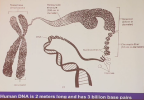
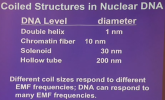
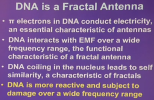
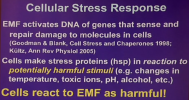
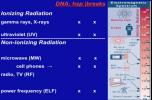
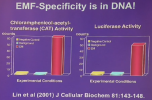
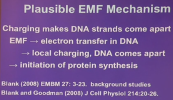
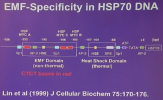
(Pierre) Given the fractal dimension of the electromagnetic connection between informational field and human beings, we think that homeopathic solutions gain potency when the succussion and dilution increase because each time you do succussion and dilution, you replicate at a different scale the same geometric signature that IS the connection to this or that part of the information field, hence increasing the potency that is fundamentally just an informational signature that you replicate and amplify at a different scale. You see what I mean? (“Succussion” is when you hit the vial. The energy provided helps to replicate the geometric signature at a different scale.)
(Joe) So start with little... Say they're like hexagons. When you succuss it, you break that one hexagon into five or six smaller versions. And you do it again and again, and eventually you saturate it with the signature of the information…
(Pierre) And since it's a fractal antenna, you receive at each frequency range, you see?
A: Not only that, but also the division is less material and more pure information field "friendly".
